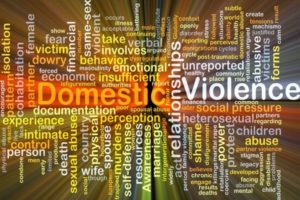
Domestic violence is a type of abusive action taken against a household member. It is often a way to gain control over the other partner, and it can be physical, emotional, sexual, or mental. When that violence is combined with a drug or alcohol addiction, the abuse can turn more dangerous – and sometimes fatal.
Domestic abuse manifests itself in different ways, including a lack of respect in the relationship, lack of empathy, outside stressors, and power imbalances in the home. A victim does not always have to be a woman, but a woman is more likely to be the victim of abuse than a man. One study by the National Institute of Health found that 61 percent of domestic violence offenders were also addicted to a substance. Therefore, there is a direct link between abuse and violence.
Why Does Substance Abuse Lead to a Higher Instance of Domestic Violence?
Drug abuse is more common in instances of domestic violence, and that is because substance abuse itself can lead to a significant change in a person’s behavior, including their ability to control actions that they normally would not have done if they were sober or not suffering from an addiction.
Just some of the mental health issues that substance abuse can lead to include:
- Depression
- Anxiety
- Mood Swings
- Suicidal Thoughts
- Paranoia
- Insomnia
- Weight Gain or Weight Loss
- Lowered Self-Esteem
Substance Abuse Does Not Have to Include Illegal Substances
Often, a person hears “substance abuse” and assumes that it is illegal drugs, but most addictions stem from legal substances, such as alcohol, prescription painkillers, and even prescribed amphetamines.
The Cycle of Abuse and Addiction
There is a coordinating cycle between abuse and addiction. An abuser is typically obsessed with being in control of their victim, and they need to feel more and more in control as time goes on. Over time, they may have more outbursts, fits of rage, and physical attacks. They will then swear that they will never do it again, apologize deeply for their actions, and often become overly affectionate. Eventually, the struggle builds up the same rage and they repeat the same actions – while cycling back to the apologetic stage.
With addiction, the cycle also recurs. Addicts will follow a repeat pattern where they will get worse and their addiction escalates to the point it impacts their life. They swear that they will quit, think they have the willpower to do so, and may even quit for a little while. Soon, they tell themselves and others they did not have an issue and will start using lightly – and their usage soon escalates.
As you can see, combining two extremely dangerous cycling problems could result in equally dangerous results at home.
Substance Abuse Is Not the Only Factor
While substance abuse can increase the likelihood of someone committing an act of violence, it is not the sole determinant. A person can abuse substances and never commit an act of violence. Typically, there are underlying tendencies or predisposed issues that will also play a role in whether a person becomes violent against another.
- Childhood Experiences – A person who experiences violence in the home during their childhood may have a higher chance of committing violent acts as an adult. For example, a child that grew up in an abusive household or where they witnessed acts of domestic violence.
- Outside Stressors – Not everyone handles stress the same, and when a person’s mind and body is already stressed from an abuse or addiction problem, other outside stressors can push them over the edge. For example, a person has a substance abuse problem and recently found out that they are losing their job and facing foreclosure. This added stress can force them to lash out violently in a situation where they might not have if they were not also dealing with a substance abuse problem.
- Side Effects from the Substances Taken – Certain substances can lead to side effects, such as insomnia or even paranoia. Those side effects could make a person more likely to commit a violent act against a household member.
Substance Abuse Is Not a Defense, but Could Help in Your Defense
If you were arrested for domestic violence against a loved one, but you were under the influence of a substance or dealing with a substance abuse problem, you may have options when mounting a defense against those charges. Do not assume that you have a defense because you were under the influence. Instead, you need to speak with a defense attorney who has experience handling those types of cases.
Most importantly, you need someone who will ensure that you get the help you need. If you have a substance abuse problem, your attorney’s goal will be to get you into a rehabilitation program instead of punishment. They may be able to work out a deal with the prosecution that allows you to seek treatment for not only the anger issues leading to domestic abuse, but your addiction problem as well.
Hire a Local Attorney That Specializes in Domestic Violence Cases

The team at New Mexico Criminal Law Offices understands the violent cycles you are going through, and while you might not be the victim of abuse, you are the victim of having the cards stacked against you – and you need help. Our team will work tirelessly to get the best possible outcome in your case, and hopefully, help you get back on your feet without the long-term consequences of a criminal conviction haunting you for the rest of your life.
Get started today by scheduling a free case evaluation with our team. You can call us to get started or complete our online contact form.

